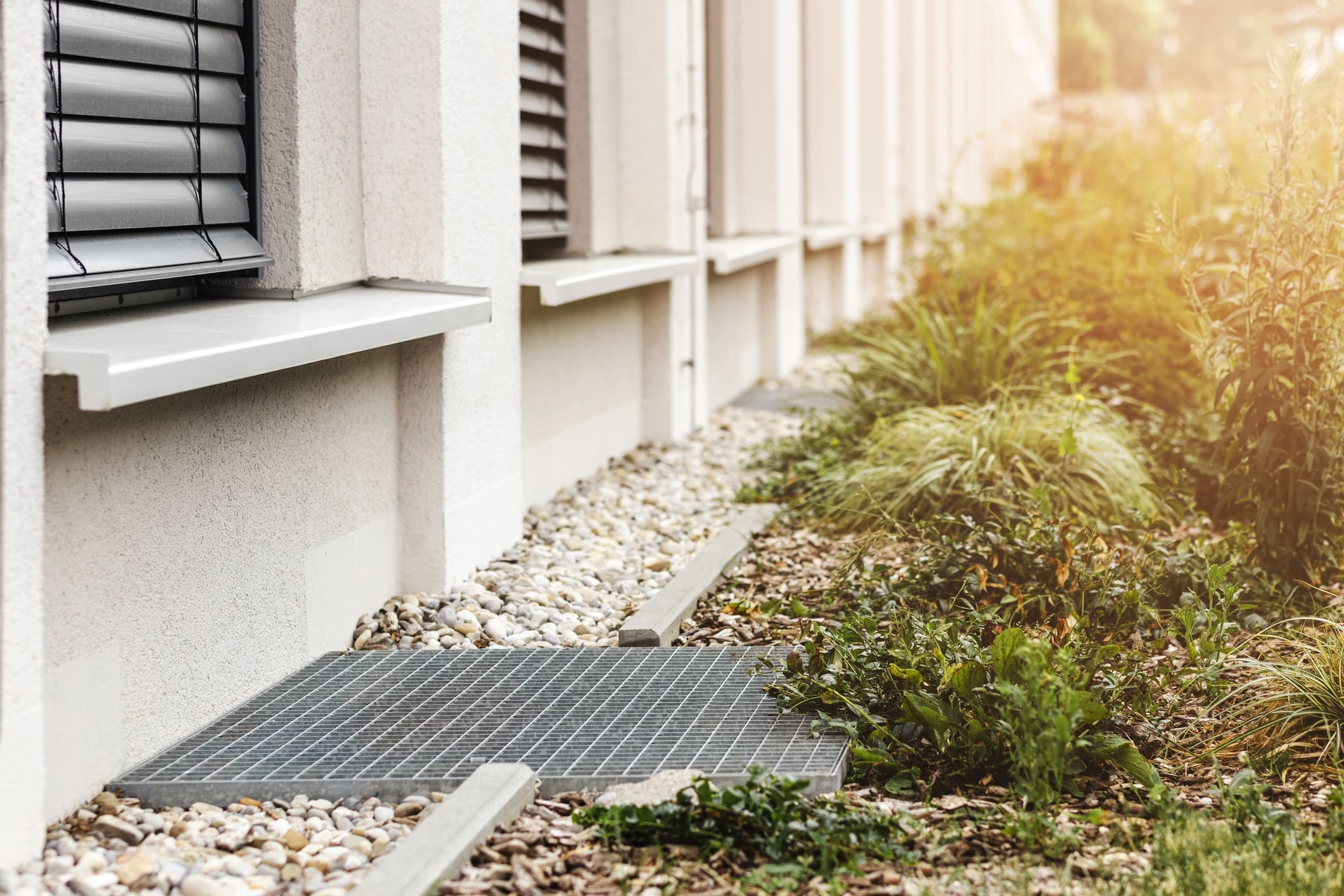Resources
How to Clean a French Drain

Maintaining a dry and structurally sound basement is essential for any homeowner, and one of the key components that contribute to a dry basement is a French drain. A French drain is a highly effective drainage system designed to divert excess water away from your home’s foundation, preventing water damage and potential flooding. Just like any other aspect of your home, regular maintenance is crucial to ensure the continued efficiency of the French drain. In this guide, brought to you by Michigan Basements, we’ll walk you through the steps to effectively clean and maintain your French drain, safeguarding your basement against water-related issues.
Step 1: Gather Your Supplies
Before you begin the cleaning process, make sure you have all the necessary tools and supplies at hand. You’ll need a pair of gloves, a garden trowel or small shovel, a bucket, a hose, a stiff brush, and a flashlight. Additionally, ensure you’re wearing appropriate clothing that you don’t mind getting dirty.
Step 2: Safety First
Safety is paramount when working around your basement and drainage systems. Make sure to turn off any electrical connections in the vicinity to prevent accidents. It’s also a good idea to let someone know that you’re working in the basement, just in case.
Step 3: Locate and Access the French Drain
Identify the location of your French drain. This may involve checking your basement floor plan or consulting with professionals like Michigan Basements who have installed the system. Once you’ve located the drain, remove any debris or objects covering the access point.
Step 4: Remove Surface Debris
Start by removing any visible debris such as leaves, twigs, or dirt that may have accumulated on the surface of the drain. Use your garden trowel or small shovel to carefully scoop out the debris and place it in the bucket.
Step 5: Inspect the Drainage Pipe
Use your flashlight to peer into the drain and inspect the condition of the drainage pipe. Look for any signs of clogs, such as sediment buildup or plant roots. If you notice any obstructions, gently use the stiff brush to dislodge the debris. Be careful not to damage the pipe while doing so.
Step 6: Flushing the Drain
Now it’s time to give your French drain a thorough flushing. Use your hose to send a strong stream of water through the drainage pipe. This will help dislodge any remaining debris and ensure the water flow is unobstructed. Keep flushing until the water runs clear.
Step 7: Regular Maintenance
Cleaning your French drain should ideally be part of your regular home maintenance routine. Schedule a cleaning session at least once a year, preferably before the rainy season or when leaves are likely to fall and create debris buildup.
Step 8: Professional Inspection
While regular DIY maintenance is essential, it’s also wise to have your French drain inspected by professionals like Michigan Basements every few years. They can conduct a thorough assessment, identify any potential issues, and perform maintenance tasks that require specialized equipment and knowledge.
In conclusion, a clean and well-maintained French drain is a crucial aspect of keeping your basement dry and preventing water-related damage. By following the steps outlined in this guide, you can effectively clean your French drain and ensure its continued functionality. Remember, when in doubt or if you encounter any complex issues, don’t hesitate to reach out to professionals like Michigan Basements for expert assistance. A little effort now can save you from potentially costly repairs down the line and provide you with the peace of mind that your basement is well-protected.


